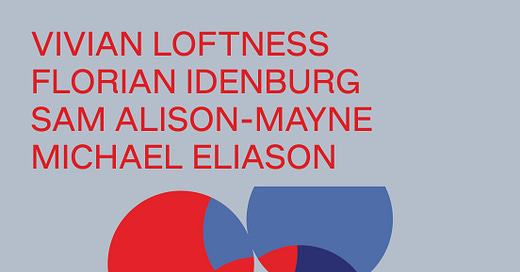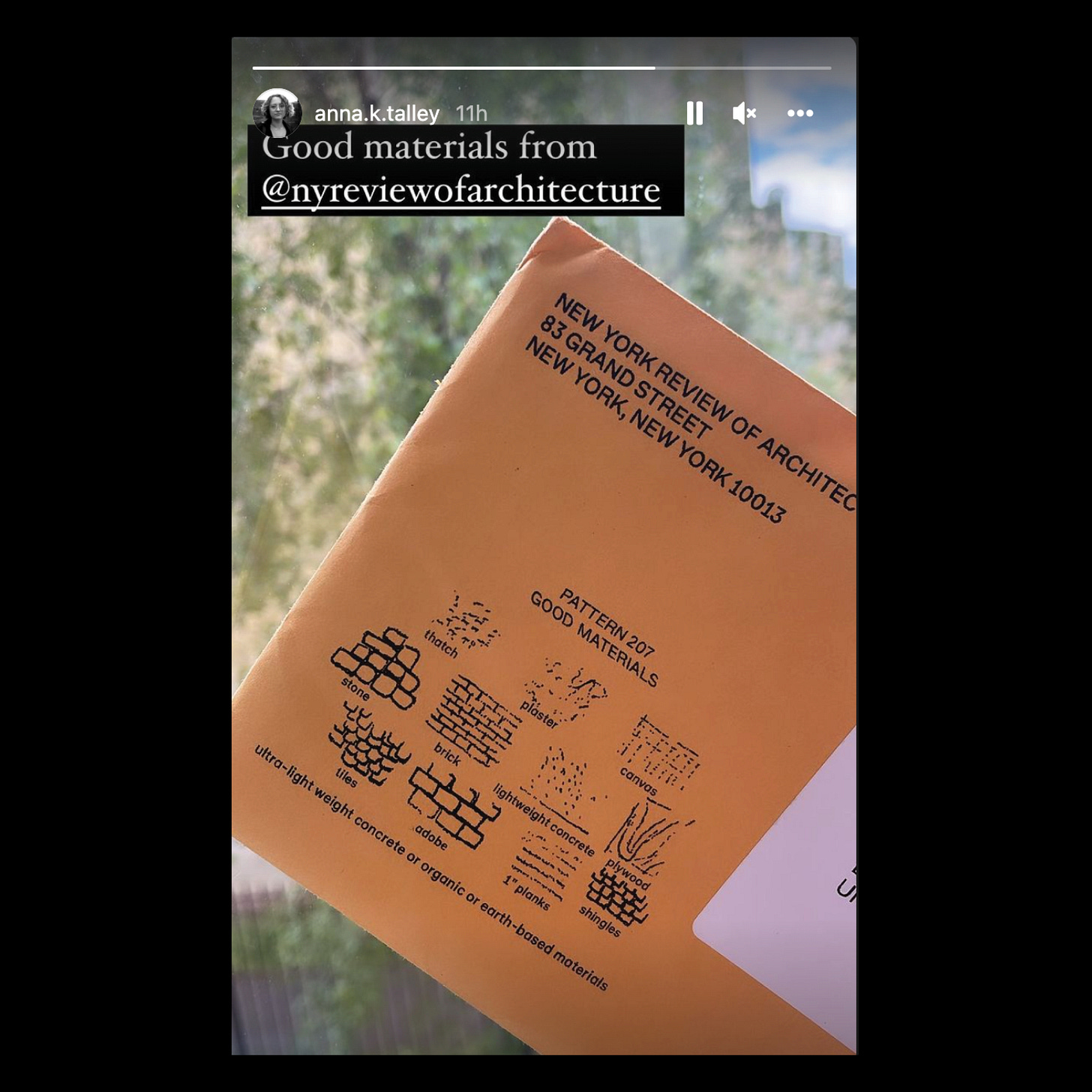June 23, 7pm: Cancel the Corridor
Vivian Loftness, Florian Idenburg, Sam Alison-Mayne and Michael Eliason discuss the corridor, the egress, and the future of housing.
“I was shocked to discover what sort of state is acceptable here,” says Florian Idenburg, co-principal and co-founder of the architecture firm SO-IL. He was talking about a New York design crutch that impoverishes residential living here by comparison to his native Netherlands: the double-loaded corridor. What’s the case against double loading a corridor? “Well I would turn that question around and ask: can you tell me one thing going for double-loaded corridors?” says Sam Alison-Mayne, the head of the Brooklyn developer Tankhouse.
So called because rooms load onto it from both sides, double-loaded corridors are a problem for Alison-Mayne because of the light and ventilation they deny to the units they connect. Want an apartment with light from three sides? Cross ventilation? A balcony or a deck? If the building uses double-loaded corridors, then you better be ready to pay up for a corner unit or a penthouse. Idenburg emphasizes the lost potential of the connecting spaces themselves.
SO-IL and Tankhouse have gone further than imagining—they are building a series of double-loaded corridor–free buildings in Brooklyn, beginning with the recently topped off 450 Warren Street.
At the same time in Seattle, Michael Eliason, architect and founder of Larch Lab may be going after a still more fundamental driver of clumsy apartment design: the unquestioned second egress. As he explained in a Slate article last year, whereas there is no proven safety benefit for the second egress, there are real and very tangible costs.
Putting these two campaigns in conversation with one another will be Vivian Loftness, former Head of Architecture at Carnegie Melon, who has conducted extensive work and research on many of the questions in play.
Please join us by Zoom or at 450 Warren Street, at 7pm on June 23rd to discuss the corridor, the egress, and the future of housing.
Register at nyra.nyc/corridor
FAQ
Wait, some of these speakers do not live in New York—are all of these people going to be there, in person??
This will be a hybrid event, with Michael and Vivian joining via Zoom, and Florian and Sam in the room, in person.
$40 to attend in person! Is it worth it?
Yes! We will be meeting in one of the top-floor apartments in 450 Warren, in one of the last times such an event is possible in the building before it is closed to the public. We will also have a simple dinner and drinks. The attendance is capped at 30 people, so you will also be part of a relatively intimate conversation.
Is there a discount for subscribers?
Yes! it is only $30 to attend as a subscriber. If you have an active subscription (or start one at nyra.nyc), to receive the reduced price, simply use the discount code SUBSCRIBER.
Who are these people?
Vivian Loftness is a University Professor and former Head of the School of Architecture at Carnegie Mellon University. She is an internationally renowned researcher, author and educator with over thirty years of focus on environmental design and sustainability, advanced building systems integration, climate and regionalism in architecture, and design for performance in the workplace of the future.
She has served on ten National Academy of Science (NAS) panels, the NAS Board on Infrastructure and the Constructed Environment and has given four Congressional testimonies on sustainability. Vivian is recipient of the National Educator Honor Award from the American Institute of Architecture Students and the Sacred Tree Award from the U.S. Green Building Council (USGBC). She received her BS and MS in Architecture from MIT and served on the National Boards of the USGBC, AIA Committee on the Environment, Green Building Alliance, Turner Sustainability, and the Global Assurance Group of the World Business Council for Sustainable Development. She is a registered architect and a Fellow of the American Institute of Architects.
Florian Idenburg is an internationally renowned architect with over two decades of professional experience. After learning the ropes in Amsterdam and Tokyo, he founded SO–IL in New York in 2008 together with Jing Liu. His years of working in cross-cultural settings make Florian a thoughtful and collaborative partner. With a joyous demeanor, he pursues innovation through working together. He has a particularly strong background in institutional spaces, leading the office on projects as Kukje Gallery and the Manetti Shrem Museum of Art at UC Davis as well as Amant Arts Campus in Brooklyn. His strength lies in generating imaginative ideas and transforming those into real-world spaces and objects.
Idenburg has a strong intuition for the orchestration of form, material, and light, and enjoys developing projects to a level where those elements become places for people to experience and use. He combines a hands-on approach with a theoretical drive, sharing this creative spirit with clients, collaborators, and students. A frequent speaker at institutions around the world, he has taught at Harvard, MIT, Columbia, and Princeton University and is currently Professor of the Practice at Cornell University. Currently, he is developing a forthcoming publication on this topic, Human(s) Work (Taschen, 2022). In 2010, Idenburg received the Charlotte Köhler Prize of the Prince Bernhard Culture Fund. He is a registered architect in the Netherlands and an International Associate of the American Institute of Architects.
Michael Eliason is the founder of Larch Lab, an architecture and urbanism think and do tank focusing on prefabricated, decarbonized, climate-adaptive, low-energy urban buildings; sustainable mobility; livable ecodistricts. He is also a dad, writer, and researcher with a passion for passivhaus buildings, baugruppen, social housing, livable cities, and car-free streets. After living in Freiburg, Mike spent 15 years raising his family - nearly car-free, in Fremont. After a brief sojourn to study mass timber buildings in Bayern, he has returned to jumpstart a baugruppe movement and help build a more sustainable, equitable, and livable Seattle. Ohne autos.
Sam Alison Mayne is a real estate and construction specialist with 12+ years of experience. Prior to founding Tankhouse, Sam was a construction manager at Sciame where he specialized in large-scale building projects in downtown Manhattan.
Sam earned his master of science in Real Estate Development from Columbia University’s Graduate School of Architecture, Preservation and Planning (GSAAP) (2013) and his bachelor of arts in Philosophy from the University of California at Berkeley (2005). Previously, Sam was an Adjunct Scholar and an Adjunct Professor at CURE, an urban think tank at Columbia University, and currently serves as a mentor for MsRED candidates.
What should I read?
"Cancel the Corridor" by Nicolas Kemper
"The Single-Staircase Radicals Have a Good Point" by Henry Grabar
A partisan twitter account in this discourse, Wohnbaumoffensive
This is so great you are putting together this conversation—how can I help support its costs?
We cover the cost of our events when attendees start new subscriptions. We are also apparently the only publication Kate Wagner looks forward to receiving in the mail. Support the work, subscribe, and add some joy to your mailbox, too.
Wait, I just got carried away reading this extremely helpful FAQ section—where is the event registration link again?
Please register for the event at nyra.nyc/corridor
NYRA is a team effort. Our deputy editor is Marianela D’Aprile, our editors-at-large are Carolyn Bailey, Phillip Denny, and Alex Klimoski, and our publisher is Nicolas Kemper.
To pitch us an article or ask us a question, write to us at: editor@nyra.nyc.
For their support, we would like to thank the Graham Foundation and our issue sponsors, Tod Williams Billie Tsien Architects and Thomas Phifer.
To support our contributors and receive the Review by post, subscribe here.





